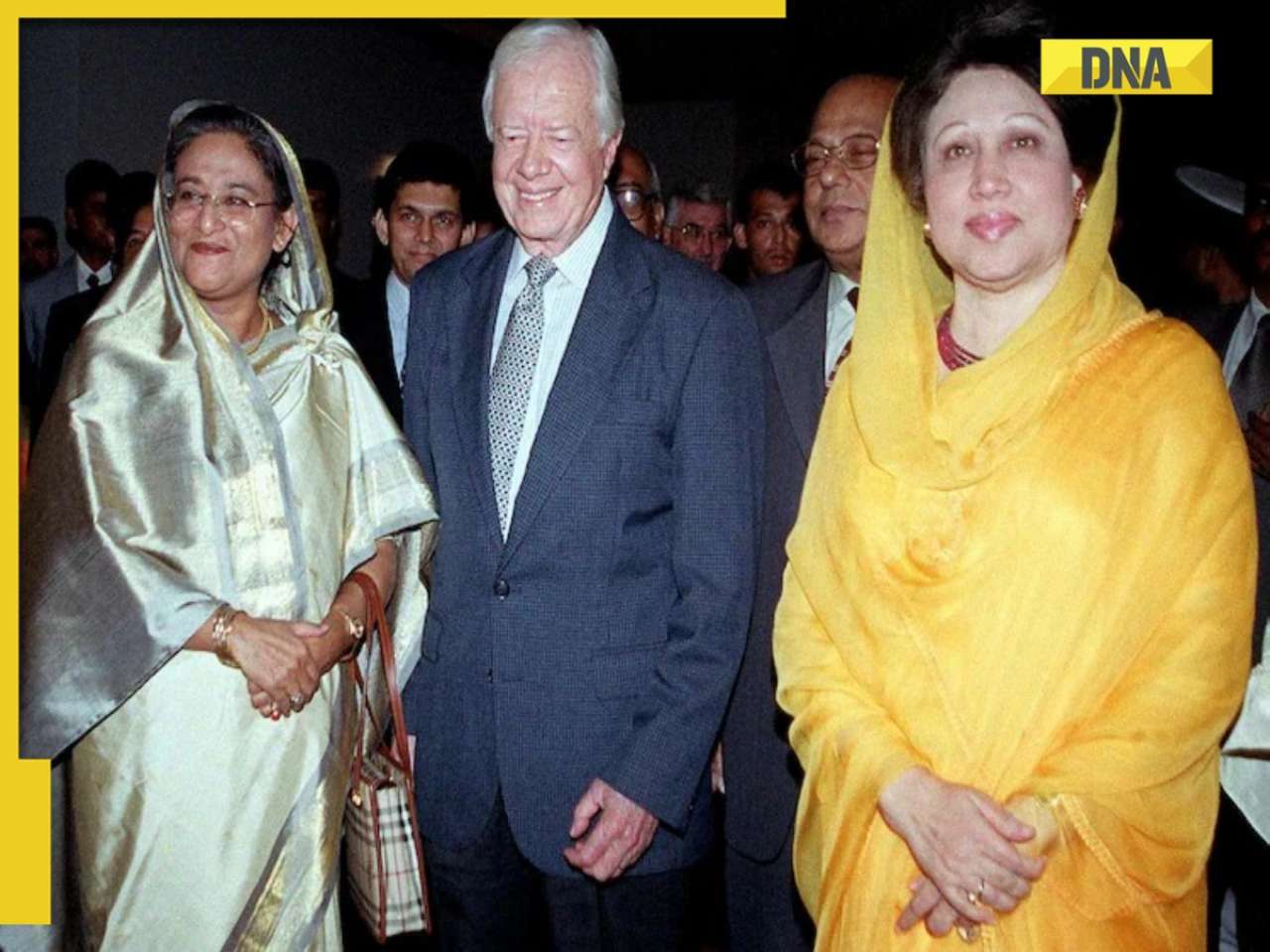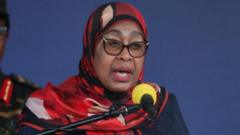How Has the Hasina-Khaleda Rivalry Shaped 50 Years of Bangladesh Politics?

Published: 2025-11-18 15:30:00 | Category: politics
The recent death sentence awarded to former Prime Minister Sheikh Hasina by the International Crimes Tribunal (ICT) in Bangladesh marks a pivotal moment in the ongoing "Battle of Begums," a fierce political rivalry that has shaped the nation's history. The court found Hasina guilty of crimes against humanity linked to the protests in July 2024, igniting a wave of political repercussions and reactions from her rival, Khaleda Zia, and her party, the Bangladesh Nationalist Party (BNP). This article delves into the historical context of their rivalry, the implications of the ICT's ruling, and what this means for the future of Bangladesh's political landscape.
Last updated: 17 November 2025 (BST)
What’s happening now
On 17 November 2025, the ICT sentenced Sheikh Hasina to death after finding her guilty of crimes against humanity stemming from the July 2024 protests. This ruling has intensified the longstanding rivalry with Khaleda Zia, whose party has long accused Hasina's administration of authoritarianism. The BNP praised the verdict as a step towards justice, urging the government to ensure impartial trials in pending cases. This dramatic turn raises concerns about further political instability in Bangladesh.
Key takeaways
- Sheikh Hasina has been sentenced to death for crimes against humanity.
- The ruling follows a history of violence and political rivalry between Hasina and Khaleda Zia.
- The BNP views this as a vindication of their stance against Hasina's governance.
Timeline: how we got here
The complex rivalry between Sheikh Hasina and Khaleda Zia can be traced back to significant events in Bangladesh’s history:
- 15 August 1975: Sheikh Mujibur Rehman, Hasina's father, is assassinated, leading to a military coup.
- 1977: General Ziaur Rahman, Khaleda Zia's husband, seizes power and establishes a military dictatorship.
- 1991: Khaleda Zia becomes the first female prime minister, supported by Islamist factions.
- 2004: A grenade attack during a rally injures Hasina and kills several others, with allegations pointing towards Zia's government.
- 2018: Khaleda Zia is sentenced to prison on corruption charges, which her supporters claim are politically motivated.
- 5 August 2024: Khaleda Zia is released on humanitarian grounds, coinciding with Hasina's flight to India.
- 17 November 2025: Hasina is sentenced to death by the ICT.
What’s new vs what’s known
New today/this week
The ICT's ruling on Hasina is a significant development in the ongoing political saga, marking a potential shift in power dynamics. The verdict has led to heightened tensions between the Awami League (AL) and the BNP, with Zia’s party calling for further investigations into Hasina's administration's conduct.
What was already established
The historical enmity between Hasina and Zia has been well-documented, with both leaders having faced accusations of corruption and political violence. The rivalry has been characterised by cycles of power shifts, political unrest, and violence, particularly in the lead-up to elections.
Impact for the UK
Consumers and households
The political instability in Bangladesh may have repercussions for UK consumers with ties to the country, particularly regarding trade and remittances. Increased unrest could affect the flow of goods and services, impacting prices for consumers in the UK.
Businesses and jobs
UK businesses operating in Bangladesh may face challenges due to the uncertain political climate. Potential disruptions in supply chains and shifts in regulatory frameworks could impact investment decisions and job security for expatriates and local workers alike.
Policy and regulation
As the situation unfolds, the UK government may need to monitor developments closely, especially in terms of human rights implications and its diplomatic relations with Bangladesh. Calls for accountability and fair trials could shape future UK foreign policy in the region.
Numbers that matter
- 1: The number of death sentences awarded to Sheikh Hasina.
- 20: The estimated number of fatalities during the 2004 grenade attack.
- 17: The total years Khaleda Zia was sentenced to prison on corruption charges.
- 2: The number of former prime ministers involved in the ongoing political rivalry.
- 50: The number of injuries reported during the 2004 attack.
Definitions and jargon buster
- International Crimes Tribunal (ICT): A special court established to prosecute individuals for crimes against humanity and war crimes in Bangladesh.
- Bangladesh Nationalist Party (BNP): A major political party in Bangladesh, historically led by Khaleda Zia.
- Awami League (AL): The ruling political party in Bangladesh, led by Sheikh Hasina.
How to think about the next steps
Near term (0–4 weeks)
The immediate aftermath of the ICT ruling will likely see increased political mobilisations from both the AL and BNP. Observers should anticipate protests and possible government crackdowns as tensions escalate.
Medium term (1–6 months)
As the political landscape evolves, the potential for further trials and investigations into past political violence may emerge. This could either stabilise or further destabilise the political environment, depending on public response.
Signals to watch
- Public protests and civil unrest in major cities.
- Statements from both major political parties regarding the ruling and their next steps.
- International responses, particularly from human rights organisations and foreign governments.
Practical guidance
Do
- Stay informed about the evolving political situation in Bangladesh.
- Support organisations advocating for human rights and fair trials.
- Engage in discussions about the implications of the ruling on global politics.
Don’t
- Ignore the potential consequences of political instability on international relations.
- Make assumptions about the motivations of either political party without evidence.
- Overlook the importance of historical context in understanding current events.
Checklist
- Monitor news sources for updates on the trial and political reactions.
- Engage with community discussions about the implications for Bangladesh’s future.
- Consider the impact of political developments on business operations in Bangladesh.
Risks, caveats, and uncertainties
While the ICT ruling may suggest a shift in political power dynamics, uncertainties remain regarding its enforcement and the potential for appeals. The situation is fluid, and observers should remain cautious about declaring definitive outcomes based on current events. Additionally, the political landscape in Bangladesh has been historically volatile, and this latest development might lead to further unrest or government crackdowns.
Bottom line
The death sentence handed to Sheikh Hasina is a significant turning point in Bangladesh’s political saga, reflecting deep-seated rivalries and historical grievances. The ruling could reshape the country's governance and civil society, making it essential for observers to monitor the situation closely as it unfolds.
FAQs
What does the ICT ruling mean for Sheikh Hasina?
The ICT ruling means that Sheikh Hasina faces a death sentence, significantly impacting her political future and the broader political landscape in Bangladesh.
How has Khaleda Zia reacted to the ruling?
Khaleda Zia and the BNP have hailed the ruling as a form of justice, calling for fair trials in other pending cases related to political violence.
What historical context is important to understand the rivalry?
The rivalry between Hasina and Zia is rooted in Bangladesh's tumultuous history, including the assassination of Sheikh Mujibur Rehman and the subsequent rise of military dictatorship, which have shaped their political careers.



